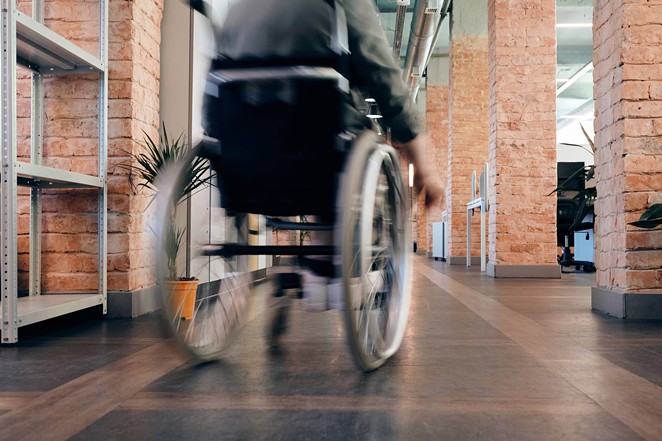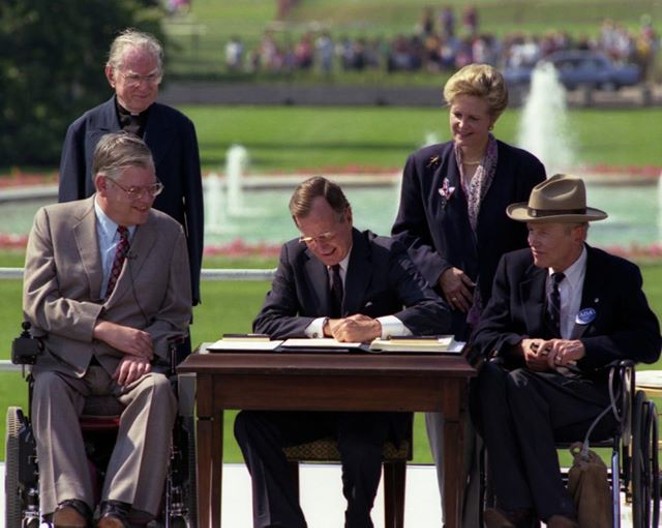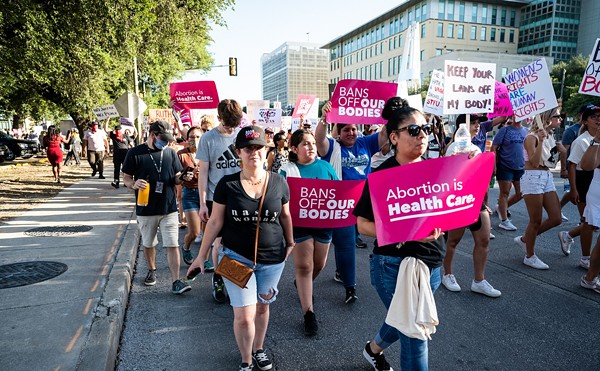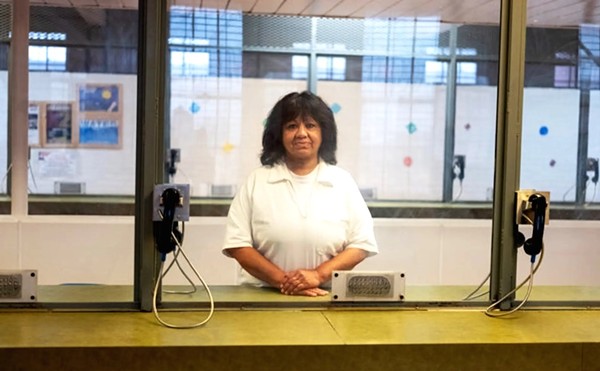“Where we need to improve in our society is how we personally frame the term disability in our head,” Cawthon told the Current. “That is going to move forward our community leaps and bounds.”
Sunday marks the 30th anniversary of the Americans with Disabilities Act, which President George H.W. Bush signed into law July 26, 1990. The act bans discrimination against people with disabilities and regulates equal access in four main areas: employment, public facilities, businesses and telecommunications.
While that may sound like common decency and fairness today, it required a strenuous fight by disability-rights advocates. In addition to lobbying and advocacy, it required protests such as the “Capitol Crawl,” in which people left their wheelchairs to climb the stairs of the U.S. Capitol.
While there's been progress for people with disabilities since then, the COVID-19 pandemic has highlighted a continued lack of accommodations, advocates argue. Recent lawsuits have accused employers, educators and healthcare providers of violating the ADA as they transitioned to online or socially distant operations.
For instance, classroom and business meetings often lack captions or sign language interpretation. Some websites with critical information aren't compatible with screen readers. Additionally, some people with disabilities have been cut off from professional caregivers as social distancing requires them to stay home.
The pandemic is also more dangerous to those with disabilities, in part because as many as 25 state departments of health factor in a person’s “baseline functional status," a person's physical ability, when deciding whether to give a person a ventilator.

“My generation, generation ADA, has benefited greatly from the passage of the ADA,” Cazares said during the conference. “But, like many other folks, the COVID-19 pandemic has laid bare the shortcomings and the areas where my generation needs to pick up the torch and carry us forward.”
Cawthon said the pandemic further shows the need to shift our way of thinking about disability. She said medical impairments don't have to equal an inability to participate, provided government and society account for individual differences.
“The way that we plan and construct things all create the disability for the person who might have a physical, developmental or sensory impairment,” Cawthon said. “If we took people and the consideration of these people into the forefront of our strategy, we could eliminate a lot of the environmental, attitudinal and communication barriers that make life challenging for a person living with a disability.”
Stay on top of San Antonio news and views. Sign up for our Weekly Headlines Newsletter.


















